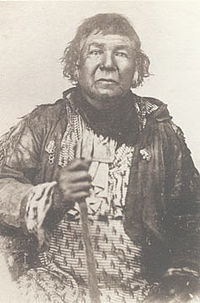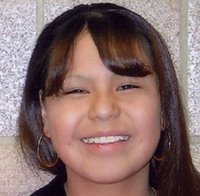“Wisdom cries out in the street; in the squares she raises her voice. At the busiest corner she cries out; at the entrance of the city gates, she speaks:
‘How long, O simple ones, will you love being simple? How long will scoffers delight in their scoffing and fools hate knowledge?’” (Proverbs 1:20-22)
We come here this morning in mourning, seeking light in the midst of a great darkness created by religious hatred.
Listening to and watching the news from the Middle East and the viral videos that call the founder of Islam “Mo” is deeply disturbing. Once again, religious fanaticism betrays its claim to bear witness to the One who remains shrouded in mystery. The fires that were set by a flame-throwing video raise the question “Will religious fanaticism prevail?
“There are only kinds of religion: one burns, the other learns.”
Those words were spoken from this pulpit two years ago. They came not from the preacher. They came from Ghafar Lackanwal, a Muslim Afghani-American, who came at our invitation after the Christian pastor in Florida threatened to burn the Quran. Ghafar accepted our invitation. He opened his Quran, read from his Book, and brought greetings peace to this congregation.
The two kinds of religion are not Christianity and Islam, or Islam and Judaism. The two kinds of religion are intransigent fundamentalism, on the one hand, and the humble search for wisdom’s guidance, on the other.
Ninety years ago a great preacher lost his pulpit for asking the question “Shall the fundamentalist win?” Harry Emerson Fosdick asked the question in 1922. He was subsequently removed from his pulpit, but he John D. Rockefeller built a church called “Riverside” where Fosdick would become one of America’s best known and most loved preachers. Some called him “America’s counselor” because of the radio broadcasts of his sermon across the country. “Shall the fundamentalists win?” By fundamentalists he meant those who claim absolute truth, denying all other claims to truth or wisdom.
Ninety years later I’m asking myself the same question.
Like Fosdick, I spent my boyhood summers on the coast of the Atlantic Ocean. The ocean became my teacher. It became, you might say, my enduring metaphor for God.
As a boy I would spend hours lost in the magnificence of the tide pools that dotted the coast of Rockport, Massachusetts. Wading in the tide pools is still my favorite thing to do. I did it again last month with my grandchildren at Coquille Point on the Pacific Coast of Oregon.
The tide pools are filled with fresh sea water. They are the temporary homes that give shelter to the starfish, crabs, periwinkles, sea anemones left there for a few hours at low tide. They are not the ocean itself.
Perhaps religion is like a tide pool, a small pool of ocean water that tastes the Ocean while pointing to the vast mystery of the Ocean on which its life depends. The tide pools hold a few drops of a vast sea. They are filled with the Ocean, but they are not the Ocean. Their health depends on the eternal rolling of the tides to refresh them.
Wading in a tide pools, it’s easy to lose track of time.
But there are other tide pools far back from the water’s edge, created by the unusually high waves of a storm. Unreachable by the normal daily tides that would refresh them, they are cut off from the Ocean that gave them life. They are without oxygen, yellow, and covered by green-yellow slime. Their original beauty has left them to the flies.
Perhaps the human soul or, a religious tradition, is like a tide pool.
“Since when has the Pacific Ocean been poured into a pint cup,” asked Fosdick, “that the God of this vast universe should be fully comprehended in human words?” One tea-cup will reveal the quality of the whole ocean. Yet it will not reveal all the truth about the ocean.
“When one considers the reach of the sea over the rim of the world; thinks of the depths that no eye can pierce…, one dare not try to put these into a tea-cup. So God sweeps out beyond the reach of human symbols. At once so true and so inadequate are all our words….”
As a Christian pastor, I can only take responsibility from within the tide pool of my Christian faith tradition. Muslim Imams like Minneapolis Imam Makram El-Amin, are doing the same in theirs. “We will stand,” he said, “in unity against these attacks and the appalling killing of the diplomat who was there on a peaceful mission” (“State Muslims denounce attacks,” Star Tribune, Sept. 13). Every Christian pastor is called to do the same in the wake of the viral film that poisoned the Ocean from a yellow tide pool in Florida.
This morning I ask you to listen to three prayers. Ask yourself who spoke them. A rabbi, an imam, or a Christian pastor.
1) O God Source of Life, Creator of Peace. . .
Help Your children, anguished and confused,
To understand the futility of hatred and violence
And grant them the ability to stretch across
Political, religious and national boundaries
So they may confront horror and fear
By continuing together
In the search for justice, peace and truth. . . .
With every fiber of our being
We beg You, O God,
To help us not to fail nor falter. Amen
2) In the Name of God, The Everlasting Merciful, The Cherisher
Of the Worlds and Worthy of all Praise,
Our Lord: You have created us from a single (pair) of a male
And a female and made us into Nations and Tribes that we may
Know one another (not that we may despise each other) so
Help us to love each other and take the hatred and anger from our
Hearts so that the People of The Book (Christians, Jews and Muslims)
In the Middle East may live in Peace and Justice. Amen
3)Two peoples, one land,
Three faiths, one root,
One earth, one mother,
One sky, one beginning, one future, one destiny,
One broken heart,
One God.
We pray to You:
Grant us a vision of unity.
May we see the many in the one and the one in the many.
May you, Life of All the Worlds, Source of All Amazing Differences
Help us to see clearly.
Guide us gently and firmly toward each other,
Toward peace. Amen.
The first prayer comes from the lips of Rabbi H. Rolando Matalon from Congregation B’nai Jeshurunin New York, NY. The second comes from Dawud Ahmad Assad of the Council of Mosques here in the USA. The third comes from the National Council of Churches of Christ.
Each of them is humble. Each of them looks to the larger Ocean to refresh us. Each begs for wisdom to guide us. Each honors the God and Creator of all.
There are only two kinds of religion. One burns; the other learns. “How long will you love being simple? How long will scoffers delight in their scoffing and fools hate knowledge?”
When any religious tradition mistakes its pool for the Ocean itself, denying the existence of neighboring tide pools along the edges of Eternity, fundamentalism wins. Things turn yellow and nasty. For those of us who are disciples of Jesus, there is only one enduring question by which our tide pool can remain open and fresh: “How shall we love the Lord our God with all our mind, hearts, soul, and strength and our neighbor as ourselves?”
Only the daily refreshment of the tides can keep the tide pools fresh. Otherwise we watch the news, asking Fosdick’s old question, and hope and pray that fundamentalism and fanaticism will not win.
– Sermon preached by Gordon C. Stewart at Shepherd of the Hill Presbyterian Church, Chaska, MN Sunday, September 16, 2012.

Alaskan tide pool photo by Susan Linz





